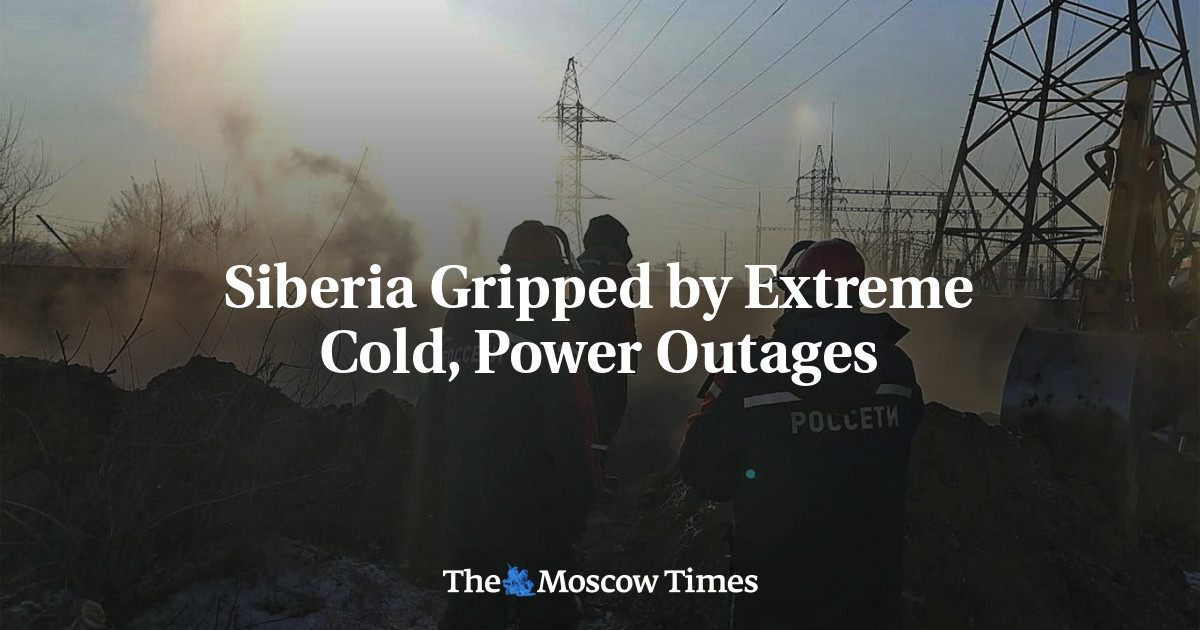
Towns and villages across Siberia have been hit by a succession of power outages as freezing temperatures grip much of the region, Russian media outlets reported Monday.
Temperatures over the weekend fell to as low as minus 40 degrees Celsius in the Irkutsk, Krasnoyarsk, and Tyumen regions, as well as the republics of Buryatia and Khakasia — all of them 2,500 kilometers or more east of Moscow.
One person reportedly died after inhaling smoke from a diesel generator in the Krasnoyarsk region, where several towns were left without heating over the weekend, according to Sibir.Realii.
Irkutsk region Governor Igor Kobzev said Monday that authorities in the town of Tulun, with a population of some 45,000 people, were responding to a boiler accident that left an unspecified number of households without heating.
“Temporary accommodation centers are ready in case the situation deteriorates,” Kobzev wrote on the messaging app Telegram.
Meanwhile, residents in a closed military town outside the city of Tyumen were left without heating for four days after a central heating system failure, local media reported.
Outside the Buryat capital of Ulan-Ude, residents recorded video addresses for President Vladimir Putin ahead of his annual call-in show, complaining about requests from local authorities to reduce their energy consumption.
In the republic of Khakassia, similar addresses were recorded by villagers who were forced to take shelter at an airport for warmth, blaming regional authorities for ignoring their plight.
“We’re freezing, Vladimir Vladimirovich [Putin]. Please help, you’re our only hope,” one of the residents of the village of Kalinino said in a video.
“We can’t heat our food, keep warm, take a bath, go to the bathroom,” she continued.
Khakassia Governor Valentin Konovalov blamed crypto miners for power
for causing an emergency with electricity supplies in a district that accounts for one-third of the region’s population of 530,000.
He ordered weekly inspections in the Ust-Abaknsky district to cut off supplies for excess energy consumers.